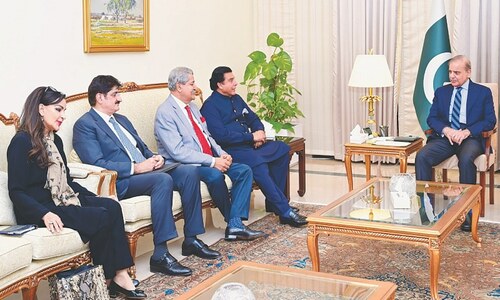NEW DELHI, Jan 15: India’s National Human Rights Commission on Wednesday accused the New Delhi government of human rights abuses, a day after New York-based Human Rights Watch levelled similar charges.
“It is often the state which is the violator of human rights in maximum cases in the country,” commission chairman J.S. Verma told reporters, according to the Press Trust of India (PTI) news agency.
“But the maximum responsibility to protect and safeguard the rights of its citizens also lies with the state,” he added.
Verma who led a team from the National Human Rights Commission to the riot-hit western Indian state of Gujarat, was one of the first to criticise the Hindu nationalist administration there of turning a blind eye to the sectarian bloodletting.
The Hindu-Muslim riots were triggered when a mob of about 1,000 people torched a train carrying Hindu activists and pilgrims in Gujarat’s Godhra town on Feb 27.
Some 2,000 people — mostly Muslims — were killed in the ensuing violence.
Verma said on Wednesday that “a lot more has to be done in Gujarat and the commission will continue monitoring the situation.”
India’s secular character, however, had not been disturbed by the Gujarat riots, the worst in the country in a decade, he said.
“I still think most of us are secular in thinking and media should avoid giving coverage to those who are not secular,” Verma said.
On Tuesday, Human Rights Watch slammed the Indian government for its role in the Gujarat riots and for using tough new anti-terror laws to crack down on political opponents.
The body also accused New Delhi of exploiting rhetoric surrounding the global war against terrorism in order to target religious minorities and political opponents.
It cited as an example the government’s decision to push through the tough new Prevention of Terrorism Act (POTA), under which several Kashmiri leaders have been detained without trial.
In March, the Indian government pushed POTA through parliament, which it said would help it curb insurgency, but rights groups had strenuously opposed it saying the legislation would infringe on human rights.
New Delhi has often come in for flak on its human rights record in the insurgency-wracked Himalayan region of Kashmir, where troops are fighting Islamic guerillas battling Indian rule.—AFP














































Dear visitor, the comments section is undergoing an overhaul and will return soon.